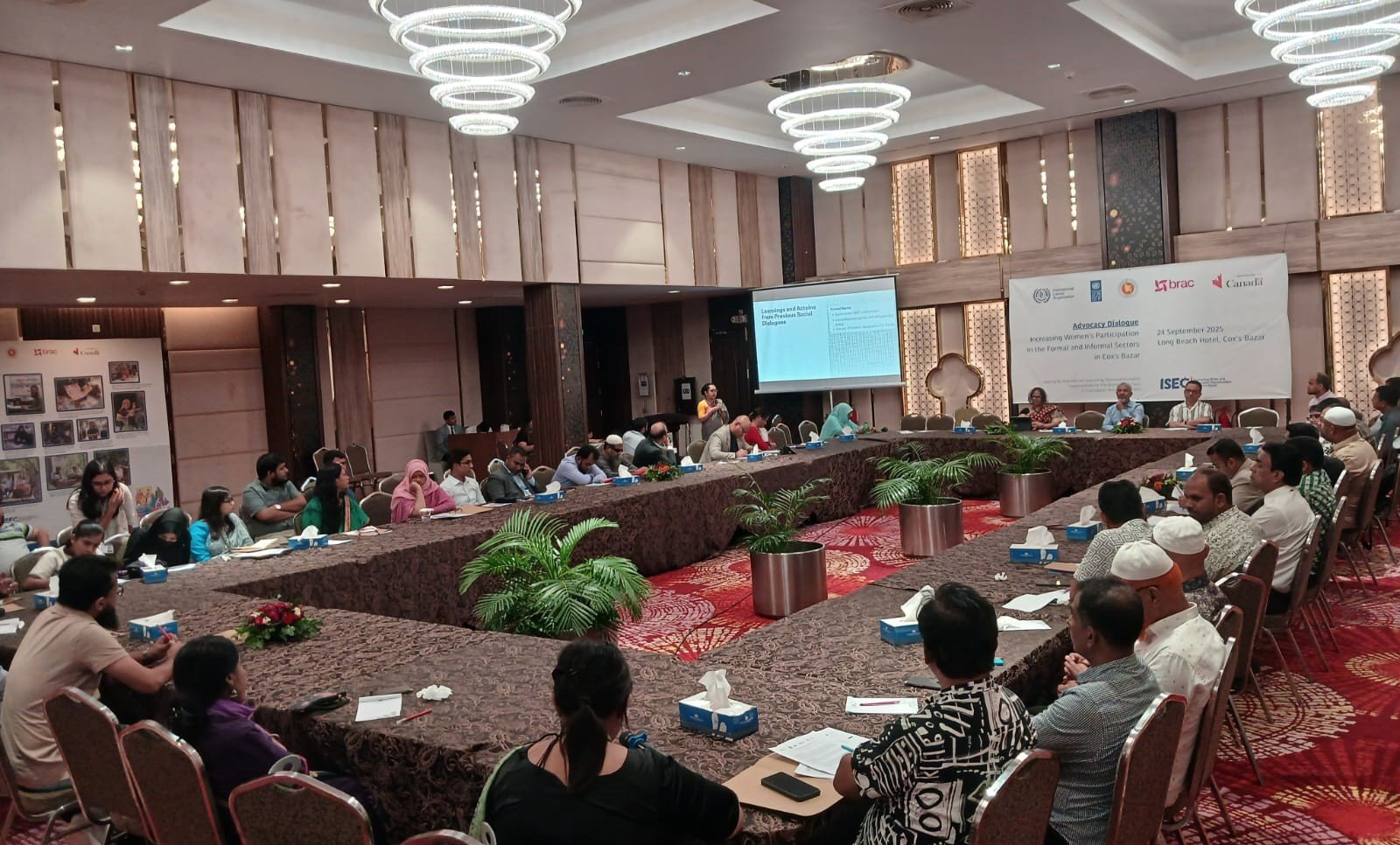Women employment can boost Cox's Bazar dev, hotel industry: Survey

Despite having potentials, women’s participation in both formal and informal sectors in Bangladesh remains far from encouraging, a recent survey revealed.
The survey conducted under BRAC’s Improving Skills and Economic Opportunities for Women and Youth in Cox’s Bazar (ISEC) project found that there are significant opportunities for women employment in the local markets and hotel industry in Cox’s Bazar. But, women participation in these sectors is still noticeably low.
These findings were exposed on Wednesday at an advocacy dialogue on titled “Increasing Women’s Participation in Formal and Informal Sectors,” held at a local hotel in Cox’s Bazar. The event, organized by the ISEC project, put forward several recommendations to boost women’s participation in the workforce.
Among the key five-point recommendations were: creating safe and secure workplaces for women, ensuring hygienic toilets in local markets, introducing a “Gender Champion” recognition for hotels and restaurants to encourage women-friendly policies, and establishing effective mechanisms to address women workers’ grievances. Speakers also stressed the importance of joint efforts by local administration and business associations, along with coordinated public-private investment in infrastructure development.
At the event, findings from the survey were presented by Masuma Billah, Head of BRAC’s Gender Justice and Diversity Programme, while Khandaker Fakhrul Alam, Head of the ISEC Project, delivered the welcome remarks and shared an overview of project activities.

The dialogue was also addressed by Nilufa Yasmin Chowdhury, Upazila Nirbahi Officer (UNO) of Cox’s Bazar Sadar, Md. Jasim Uddin Chowdhury, Additional Superintendent of Police, and Abu Murshed Chowdhury, President of Cox’s Bazar Chamber of Commerce and Industry, among others.
More than 50 participants attended, including government officials, local administration, business leaders, hotel and restaurant owners, market committees, women entrepreneurs, labor representatives, development organizations, and members of the media.
Cox’s Bazar UNO Nilufa Yasmin Chowdhury said, “We want to take Cox’s Bazar’s tourism industry to an international standard. To achieve this, women’s participation in the sector must be ensured.”
Additional SP Md. Jasim Uddin Chowdhury said, “For anything to be sustainable, the most crucial factor is security. We must all work together to ensure the safety of both men and women, including tourists, in Cox’s Bazar.”
Kazi Rowshan Ara, Head of BRAC’s Skills Development Programme, said, “Women-friendly infrastructure and policies in markets and the hospitality sector are urgently needed. This will not only create jobs for women but also strengthen the overall economy.”
Masuma Billah said, “Our recent research shows that nearly 50% of women who entered the workforce had to quit due to various barriers. Yet there are ample opportunities in both formal and informal sectors. If more women are engaged, the economy will see a positive transformation.”
The ISEC project is working across nine upazilas of Cox’s Bazar to improve the lives and livelihoods of local communities. Funded by Global Affairs Canada, the initiative is jointly implemented by BRAC, the International Labour Organization (ILO), and the United Nations Development Programme (UNDP), under the leadership of the Department of Youth Development, Ministry of Youth and Sports, Government of Bangladesh.
The project aims to equip youth, women, and persons with disabilities—who are neither in education, employment, nor training (NEET)—with market-relevant, gender-sensitive skills and entrepreneurial opportunities, thereby enhancing their employability and fostering entrepreneurship in Cox’s Bazar



